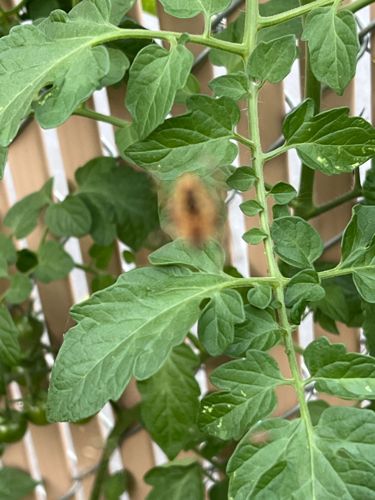Woolly Bear Caterpillar (Larval stage of Isabella Tiger Moth)
Scientific Name: Pyrrharctia isabella
Order & Family: Lepidoptera, Erebidae (formerly Arctiidae - tiger moths and allies)
Size: Larva (caterpillar): 1-2 inches (2.5-5 cm) in length. Adult moth: Wingspan of 1.5-2.5 inches (3.8-6.3 cm).

Natural Habitat
Widely distributed across North America, found in gardens, fields, meadows, wooded areas, and disturbed habitats.
Diet & Feeding
Broadleaf plants, including dandelions, plantain, clover, sunflowers, asters, and sometimes garden vegetables like cabbage and spinach. They are not typically a significant pest of garden plants.
Behavior Patterns
Woolly bear caterpillars overwinter as larvae, often under bark or logs, and emerge in the spring to feed and pupate. They curl into a tight ball when disturbed, playing dead or protecting their less-hairy underside. The adult moth (Isabella Tiger Moth) is nocturnal.
Risks & Benefits
The bristles (setae) of woolly bear caterpillars are not venomous, but they can cause mild skin irritation for some sensitive individuals if handled. They are generally considered harmless and are known for their supposed ability to predict winter severity (though this is folklore). They serve as a food source for birds and other predators.
Identified on: 8/26/2025